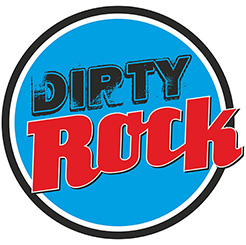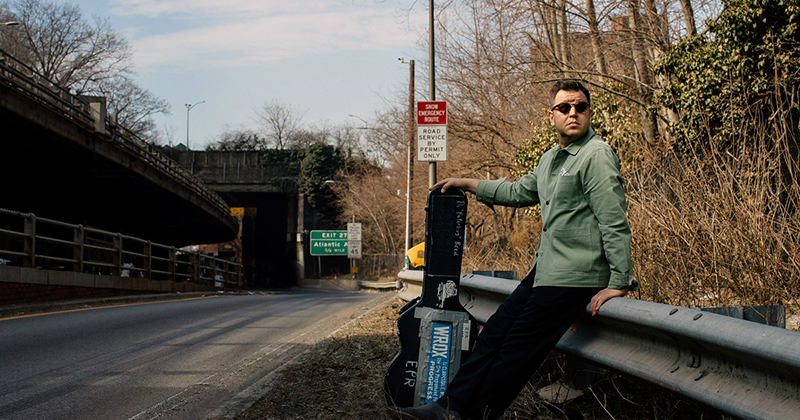Entrevistamos a Eli Paperboy Reed con motivo de su nuevo disco “Down Every Road” homenaje a Merle Haggard y defensa del mismo encima de escenarios españoles en una gira que comienza el 9 de junio en San Sebastián y concluye en Gijón el 18 de junio.
El country y el soul pueden parecer mundos separados, pero se unen poderosamente en la nueva colección de Eli Paperboy Reed con «Down Every Road» publicado el pasado mes de abril, el tributo del músico inspirado y crudo a la leyenda del country Merle Haggard y que podremos escucharlo en nuestro país en 8 fechas confirmadas en junio.
Mejor conocido como cantante de soul y baladista, Reed regresa con un álbum de doce canciones que revela las raíces country que se remontan a su infancia. Desde aquellos primeros días en los que examinó la colección de discos de su padre, fue la música country lo primero que cautivó la imaginación de Reed, la voz de George Jones, la actitud de Waylon Jennings y, sobre todo, la composición de Merle Haggard.
«Down Every Road» surge de una idea que Reed ha contemplado desde los primeros días de su carrera, comparando los favoritos de Haggard con la música soul por la que se ha vuelto más conocido en su célebre obra. Manteniendo intactas casi todas las melodías originales y las estructuras de las canciones de la leyenda del country, Reed aporta una nueva perspectiva al agregar una guitarra inspirada en Pops Staples, marcas registradas de producción de FAME, trompetas de Stax, voces ferozmente catárticas y órganos que conjuran el alma de Memphis.
En última instancia, con este enfoque deferente pero radicalmente reelaborado, demuestra que el corazón, las agallas y la verdad en el núcleo de la composición de Merle Haggard desafían el género por completo.
Una oportunidad para aquellos que desconocen la obra de Merle Haggard para adentrarse a sus canciones, reinterpretándolas de forma creativa y audaz del mejor compositor de música country en un estilo completamente diferente, la música soul, que se siente como si estuviera destinado a ser.
Fechas de la gira española de Eli Paperboy Reed 2022:
- 9 junio- Donostia- Dabadaba
- 10 junio – Bilbao – Azkena . Gira Vibra Mahou by Mad Cool 2022
- 11 junio – Vitoria – Jimmy Jazz – Gira Vibra Mahou by Mad Cool 2022
- 12 junio – Madrid – Noches Del Botánico ( con Imelda May)
- 14 junio – Sevilla – Sala X
- 15 junio – Málaga – La Cochera Cabaret
- 16 junio Valencia – Loco Club – Gira Vibra Mahou by Mad Cool 2022
- 17 junio Valladolid – Desierto Rojo – Gira Vibra Mahou by Mad Cool 2022
- 18 junio – Gijón – Billy Bob
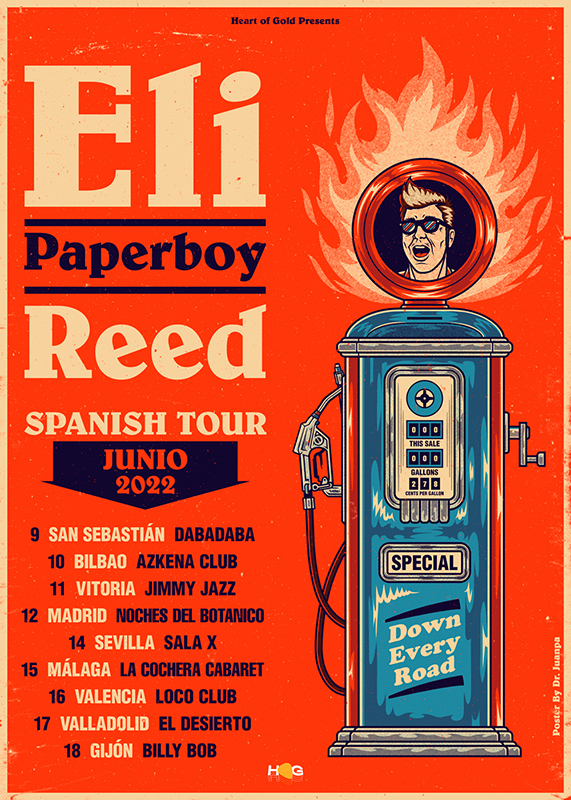
Entrevista a Eli Paperboy Reed 2022:
Encantados de tenerte en Dirty Rock Magazine y emocionados de verte pronto encima de nuestros escenarios. Gracias por tomarse el tiempo para hablar con nosotros. Estos últimos años han sido duros, ¿verdad? ¿Cómo te encuentras después de esta pandemia y este parón obligatorio? ¿Cuántas ganas había de visitarnos?
Ya sabes, antes de estos dos últimos años (2020 y 2021) ¡había venido a España todos los años desde 2007! Realmente lo extrañé y no puedo esperar para volver allí. Han sido un par de años muy extraños y difíciles, pero espero que estemos encontrando la salida.
¿Qué sentiste hace unas semanas cuando entraste al Grand Ole Opry, a qué olía, qué fue lo que más te impactó de aquella primera noche?
Me sacudió más fuerte de lo que pensé que sería honestamente. Hacen un trabajo increíble al reforzar y revigorizar la mitología del lugar. Es una institución singular tan asombrosa. ¡No puedo pensar en nada más como eso! Estar en el escenario, en el círculo donde tantos se pararon y cantaron antes que yo, es un sentimiento indescriptible.
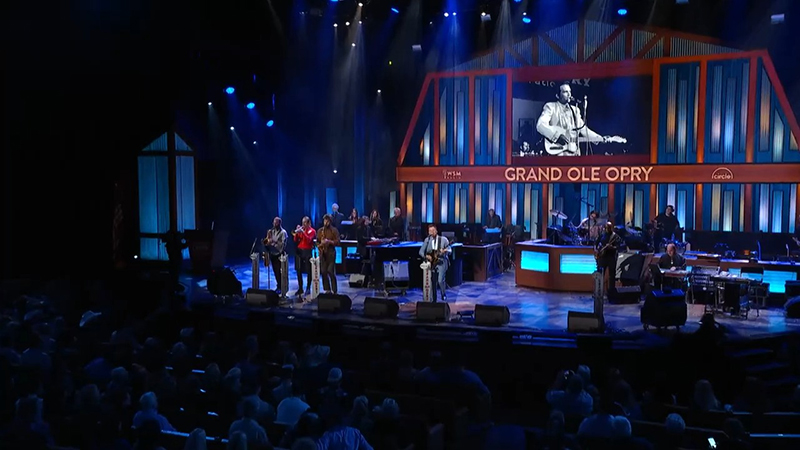
¿Qué te hizo lanzarte a hacer un disco completo de un gigante como Haggard? ¿Es algo que tenías en mente mucho antes? ¿Consideraste hacer un disco con versiones de otros artistas del country?
Es algo que tenía en mente desde hace mucho, mucho tiempo. ¡Las canciones de Merle realmente me hablaron y estos arreglos han estado dando vueltas en mi cabeza durante más de una década! Creo que hay toneladas de grandes artistas country, pero para mí, las canciones de Merle realmente se prestaban para esos arreglos.
Cuando viví en Estados Unidos llegué a escuchar que la vida no es lo mismo sin Chuck Berry o Elvis Presley en el Rock & Roll o Merle Haggard en el Country, y es verdad, ese Country del alma o Soul Country. ¿Podría decirnos cuán importante es Merle Haggard para usted y la música popular estadounidense?
Esas son dos preguntas bastante diferentes. Creo que Merle es importante para la música estadounidense, pero ¿podría ser más importante para mí? Se ha escrito mucho sobre Bakersfield o la música country de la costa oeste y cómo cambió el género, pero este proyecto fue más personal que cualquier otra cosa. Elegí estas canciones y hacer este álbum porque amo a Merle y amo su trabajo, realmente no hay otra razón.
Haggard es una leyenda americana en sí mismo, un republicano declarado alejado del populismo progresista, quizás no era el más escuchado en un lugar como la Costa Este de EEUU. ¿Qué significa una figura como la tuya para un bostoniano independientemente de su música?
Hago todo lo posible para mantener la política fuera de mi música. Realmente no puedo comentar sobre Merle y su política o su base de fans. Para lo que sea que valga, mi papá era un gran fanático de Merle Haggard y pinchaba todos sus discos todo el tiempo para mí en los suburbios de Boston.
Las letras de Merle Haggard están repletas de referencias hacia el mundo del alcohol y drogas, rostros curtidos y miradas pendencieras, en las que represento aquella guerra fratricida contra el sonido de Nashville en los sesenta, Merle siempre disparaba como un vaquero con canciones y composiciones que han hecho historia contra los pacifistas y los hippies durante la guerra de Vietnam. ¿Qué tan diferentes son sus letras de otros grandes del movimiento Outlaw?
Creo que lo que más me llama la atención es la inmediatez de sus letras. Si bien no siempre es el caso, la mayoría de las veces las canciones de Merle tratan sobre un momento particular en el tiempo, una encrucijada emocional. Eso es lo que hace que estas canciones funcionen tan bien en un contexto de “soul”, porque la inmediatez también es un sello distintivo de la gran música soul. Sin embargo, como pueden imaginar, también elegí canciones específicas que sentí que eran las más adecuadas para este proyecto. No encontrarás “Okie from Muskogee” en este álbum por esa razón.
Siendo de Boston una de las ciudades con más barrios de Estados Unidos, y con grandes influencias del rock, folk e incluso hip hop, ¿Qué te llevó al soul? ¿Qué se escuchaba en tu barrio?
Diría que musicalmente no crecí en “Boston” per se, crecí en mi sala de estar. Mi sala de estar estaba llena de la colección de discos de mi papá, que estaba llena de Merle Haggard, Howlin’ Wolf, Wilson Pickett, George Jones, The Sensational Nightingales, etc. Ese fue el vecindario en el que crecí.
De Boston han salido bandas legendarias de diferentes estilos, que van desde Aerosmith, Pixies, The Cars, Treat her right, The J. Geils Band, o el gran Peter Wolf, etc… ¿Habías pensado alguna vez en un sonido más cercano al Boston urbano?
Todas esas bandas son en realidad un poco adelantadas a mi tiempo, por lo que no conocía nada de ese “Boston Sound” cuando era niño. Sin embargo, los sonidos que influyeron en mi estilo de actuación fueron las bandas de punk con las que toqué en tugurios a principios de la década de 2000. Todos éramos jóvenes y tocábamos en conciertos con bandas de nuestros compañeros que tocaban post-punk. Intentar igualar esa energía fue parte de la forma en que desarrollé mi estilo como intérprete.
Con el tiempo tu música y sonido se ha orientado hacia el soul o el blues sin dejar atrás el género, ¿por qué después de tus tres primeros discos decidiste cambiar tu sonido tan radicalmente con el fallido en nuestra opinión con aquel “Nights like this” (2014)?
¡Ese álbum tiene casi 10 años ahora! He hablado tanto de eso que no queda mucho por decir. Baste decir que no considero ese disco un fracaso. Fue un intento de algo diferente y nuevo y creo que hoy se mantiene.
Hablemos un poco sobre el estado de la industria de la música. ¿Cuáles son algunas de las cosas que te gustaría ver cambiar para mejorar tanto a sus seguidores como a los artistas?
Si hay algo que me frustra es la forma en que se dividen los royalties en la música por descarga. Tu contribución a un servicio de transmisión debe ir a las arcas de los artistas que escuchas. Si alguien solo escucha a Eli Paperboy Reed, entonces el 100 % de su tarifa de suscripción debe ir a mis sellos, editores, etc. después de que el servicio se lleve su parte. En este momento, su dinero se destina a un gran bote y la mayor parte va directamente a los artistas con los números de transmisión más altos.
En un mundo dominado por el capitalismo y las redes sociales, ¿pueden los artistas independientes salir adelante de verdad? ¿Cómo mantenemos nivelado el campo de juego para que todos tengan la oportunidad de tener éxito?
Creo que el campo de juego es parejo, tal vez incluso más de lo que solía ser. El oyente tiene acceso a toda la música del mundo y puede buscar lo que le gusta con solo hacer clic en un botón. No hay mucho más que se pueda hacer desde el lado de la industria.
¿Hay esperanza en este mundo?
Tengo dos niños pequeños, de 3 y 6 años. Ellos son mi esperanza para el mundo.
¿Qué tiene la música soul que te conecta con ese momento humano?
¡Eso es difícil! Realmente no puedes definir el momento. Sugeriría escuchar a R.H. Harris & The Soul Stirrers cantando “By and By”. Cuando Harris canta “pruebas oscuras en cada mano, señor, no podemos entender”, eso es lo más cerca que puedo llegar a una definición.
Hablemos de soporte musical ¿Cintas? ¿CD? ¿Digital? ¿Dónde te gusta comprar música?
Siempre seré un tipo de 45, aunque últimamente también he estado comprando algunos de 78. Principalmente compro e intercambio con otros coleccionistas de discos, así que no soy el comprador de música promedio. Dicho esto, uso la música de Apple y constantemente encuentro cosas nuevas y viejas para escucharlas en plataformas musicales.
Como músico, ¿Cuáles son algunas de tus primeras y más importantes influencias? ¿Cómo desarrollaste tu estilo característico?
¡Demasiados para contarlos! Como cantante: Johnny Jones del Swanee Quintet, Julius Cheeks, Ira Tucker, Conway Twitty, Johnny Adams, Roscoe Robinson. Como guitarrista: Snooks Eaglin, Howard Carroll, Joe Willie Wilkins, Reggie Young, Don Rich, Doc Watson. Como compositor: Bobby Womack, Merle Haggard, George Jackson, Paul Overstreet, Dan Penn, Thomas Dorsey, Otis Blackwell.
Creo que escuchar tanto es lo que ha contribuido a mi estilo. ¡Escucha absolutamente todo y deja que rebote en tu cabeza y salga sonando como tú mismo!
Finalmente Eli, cuéntanos qué te gustaría que leyera la gente cuando esté pensando en venirte a ver a alguno de tus conciertos en España este mes de junio.
¡Estoy loco ya de tocar enfrente de todos vosotros! Vamos a tocar canciones de cada álbum más una buena dosis de Merle Haggard. ¡Esperad lo inesperado!
Entrevista realizada por Carlos Pérez Báez y Patricio González Machín.
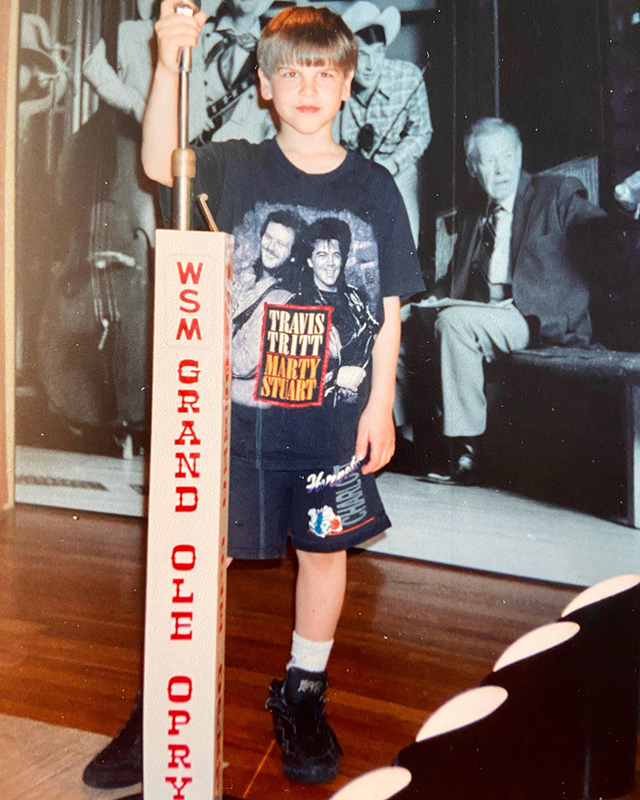
Interview to Eli “Paperboy” Reed:
Delighted to have you in Dirty Rock Magazine and excited to see you in Spain soon. Thank you for taking the time to speak with us. This last years has been rough, right? How are you holding up after this pandemic and this mandatory break? How much did you want to visit us?
You know, before these past two years (2020 and 2021) I had come to Spain every year since 2007! I really did miss it and I can’t wait to get back over there. It’s been a very strange and difficult couple of years, but I hope that we are finding our way out of it.
What did you feel when you entered the Grand Ole Opry, what did it smell like, what struck you the most on that first night?
It hit me harder than I thought it would honestly. They do an incredible job of reinforcing and reinvigoration the mythology of the place. It’s such an amazing singular institution. I can’t think of anything else like it! Being on the stage, in the circle where so many had stood and sung before me is an indescribable feeling.
What made you launch to make a whole album of a giant like Haggard? Is it something you had in mind long before? Did you consider making an album with versions of other country artists?
It’s something that I have had in mind for a long, long time. Merle’s songs really spoke to me and these arrangements have been kicking around in my head for more than a decade now! I think that there are tons of great country artists, but for me, Merle’s songs really lend themselves to these arrangements.
When I lived in the United States I came to hear that life is not the same without Chuck Berry or Elvis Presley in Rock & Roll or Merle Haggard in Country, and it is true, that Country of the soul or Soul Country. Could you tell us how important Merle Haggard is to you and American popular music?
Those are two pretty different questions. I think Merle is important to American music, but he might be more important to me? There’s been so much written about Bakersfield or West Coast Country music and how it changed the genre, but this project was more personal than anything else. I chose these songs and to do this album because I love Merle and I love his body of work, no other reason really.
Haggard is an American legend by himself, a declared Republican away from progressive populism, perhaps he was not the most listened to in a place like the East Coast of the USA. What does a figure like yours mean to a Bostonian regardless of his music?
I try my best to keep politics out of my music. I can’t really comment about Merle and his politics or his fanbase. For whatever it’s worth, my Dad was a huge Merle Haggard fan and played his records all the time for me in suburban Boston.
Lyrics by Merle Haggard full of a lot of alcohol and drugs, weathered faces and quarrelsome looks, in which I represent that fratricidal war against the Nashville sound in the sixties, Merle was always shooting like a cowboy with songs and compositions that have made history against the pacifists and hippies during the Vietnam war. How different are his lyrics from other greats of the Outlaw movement?
I think what stands out for me more than anything is the immediacy of his lyrics. While not always the case, more often than not Merle’s songs are about a particular moment in time, an emotional crossroads. That’s what makes these songs work so well in a “soul” context, because immediacy is a hallmark of great soul music, too. As you might imagine, though, I also chose specific songs that I felt were the best suited to this project. You won’t find “Okie from Muskogee” on this album for that reason.
Being from Boston one of the cities with the most neighborhoods in the United States, and with great rock, folk and even hip hop influences, what led you to soul? What was heard in your neighborhood?
I would say that musically I did not grow up in “Boston” per se, I grew up in my living room. My living room was full of my Dad’s record collection which was full of Merle Haggard, Howlin’ Wolf, Wilson Pickett, George Jones, The Sensational Nightingales etc….That was the neighborhood I grew up in.
Legendary bands of different styles have come out of Boston, from Aerosmith, Pixies, The Cars, Treat her right, The j. geils band, or the great Peter Wolf, etc… Have you ever considered a sound closer to urban Boston?
All those bands are actually quite a bit before my time, so I wasn’t really aware of any of that “Boston Sound” as a kid. The sounds that did influence my performance style, though, were the punk bands that I played with at basement shows in the early 2000s. We were all young and playing shows with bands of our peers who were all playing post-punk. Attempting to match that energy was part of the way I developed my style as a performer.
Over time your music and sound has been oriented towards soul or blues without leaving the genre behind, why after your first three albums you decided to change your sound so radically with the fail on “Nights like this” imo?
That album is almost 10 years-old now! I’ve talked about it so much there isn’t a lot left to say. Suffice it to say that I do not consider that album a failure. It was an attempt at something different and new and I think it stands up today.
Let’s talk about the state of the music industry a bit. What are a few things you would like to see change for the betterment of both the fans and artists alike?
If there’s anything that’s frustrating to me it’s the way streaming royalties are split. Your contribution to a streaming service should go to the coffers of the artists you listen to. If someone only listens to Eli Paperboy Reed, then 100% of their subscription fee should go to my labels, publishers etc….after the service takes its cut. Right now your money goes in to a big pot and most of it goes directly to the artists with the highest streaming numbers.
In a world dominated by capitalism and social media, can indie artists really, truly get ahead? How do we keep the playing field level so that everyone has a chance to succeed?
I think that the playing field is even, maybe even more than it used to be. The listener has access to all the music in the world and they can seek out things that they like with the click of a button. There’s not that much more that can be done from the industry side.
Is there hope in this world?
I have two small kids, ages 3 and 6. They are my hope for the world.
What is it about soul music that connects you to that human moment?
That’s a hard one! You can’t really define the moment. I’d suggest listening to R.H. Harris & The Soul Stirrers sing “By and By.” When Harris sings “trials dark on every hand, lord we cannot understand” that’s the closest I can come to a definition.
Are you into records? Tapes? CDs? Digital? Where do you like to shop for music?
I am forever a 45 guy, though lately I’ve been buying some 78s too. I mostly buy and trade with other record collectors so I am not your average music purchaser. That said, I use Apple music and I’m constantly finding new stuff and new old stuff on there to stream.
As a musician, who are some of your earliest and most important influences? How did you develop your signature style?
Too many to even count! As a singer: Johnny Jones of the Swanee Quintet, Julius Cheeks, Ira Tucker, Conway Twitty, Johnny Adams, Roscoe Robinson. As a guitarist: Snooks Eaglin, Howard Carroll, Joe Willie Wilkins, Reggie Young, Don Rich, Doc Watson. As a songwriter: Bobby Womack, Merle Haggard, George Jackson, Paul Overstreet, Dan Penn, Thomas Dorsey, Otis Blackwell.
I think doing so so much listening is what has contributed to my style. Listen to absolutely everything and let it bounce around in your head and come out sounding like yourself!
Tell us what you would like for people to read when they are thinking about coming to see your shows in Spain in June.
I am excited! We’re going to play songs from every album plus a healthy dose of Merle Haggard. Expect the unexpected!
